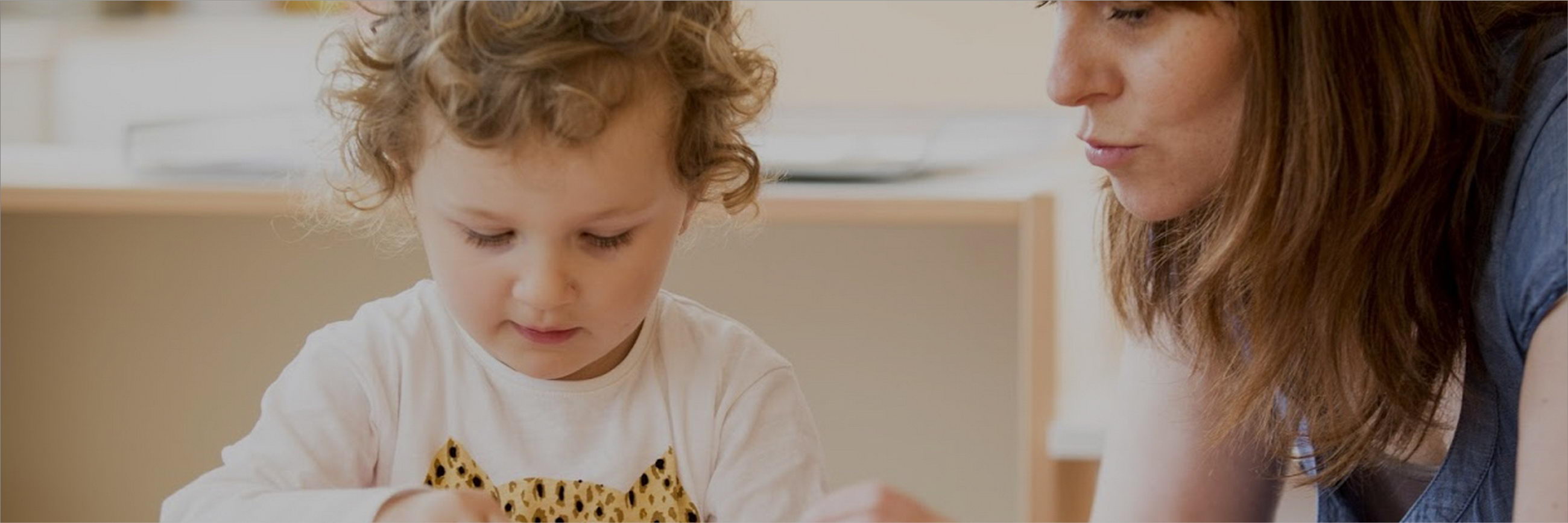History of Montessori in CR
![]() Reform pedagogy started to develop in the period of the so-called First Republic in 1918. At that time a book written by Maria Montessori was translated and published as Příručka vědecké pedagogiky (The Handbook of Scientific Pedagogy).
Reform pedagogy started to develop in the period of the so-called First Republic in 1918. At that time a book written by Maria Montessori was translated and published as Příručka vědecké pedagogiky (The Handbook of Scientific Pedagogy).
Events at the end of the 1930s and the Nazi occupation made it impossible for the Montessori approach to spread. Free development of man is generally repressed by all totalitarian and dictatorial regimes, and when soon after the end of the war in 1945, the Communist Party of Czechoslovakia strengthened its position, free development and the spread of reforming ideas was interrupted for more than 50 years. Montessori's name was even no longer mentioned during university lectures on pedagogy and psychology. This was despite the fact that Dr Jean Piaget, who was highly acclaimed in our country, served as the President of the Swiss Montessori Society for a number of years.
![]()
It is therefore quite logical that Czech education between 1948 and 1989 was, along with the whole society, excluded from the natural development, which developed democratic countries were experiencing. After 1989 not only the democratisation of the whole society but also education set in. How far have we come since then? Here, I’m going to borrow a quote by Vladimír Václavík, author of the book Cesta ke svobodné škole (The Path to a Free School): More than 200 years ago David Hume wrote that "It is seldom, that liberty of any kind is lost all at once." The same is true vice versa. Obtaining freedom for decision-making on the character of your own school is much more complicated than some representatives of the "náprava věcí školských" (Rectification of School Matters) thought after the 1989 revolution. The path to a free school began in 1989 and has continued until today.
The process of restoration is far from over. The biggest progress can be seen in primary and lower elementary schools. A number of them have more or less abandoned the ossified methods of the previous regime.
With democracy, new space opened for the pedagogical autonomy of schools and for the individual freedom of the teacher and the child. Due to foreign influence, pressure by parents and enthusiastic teachers and the support of leading figures from the academic field, the Montessori educational system started to break through.
![]() The Montessori pedagogy in the Czech Republic has been flourishing since the 1990s when Asociace Montessori (The Montessori Association) and Kruh přátel Montessori škol (Friends of Montessori Schools) established an independent Montessori school in Černý Most, Prague. Thanks to their organiser Mr Plachký, three translated books by Dr Montessori were published. Together with Prof Rýdl and Dr Baxová they compiled an educational programme for Montessori primary and elementary school (lower and higher elementary), which they presented to the Ministry of Education as a pilot project. The first course of the Montessori Method for educators and the public took place in 1998 in Prague under the guidance of American lecturers. The Montessori programme was implemented by the primary schools in Kladno and Jablonec nad Nisou. The teachers from these primary schools as well as other teachers went to training courses in Europe and gained experience in European schools with a longer tradition.
The Montessori pedagogy in the Czech Republic has been flourishing since the 1990s when Asociace Montessori (The Montessori Association) and Kruh přátel Montessori škol (Friends of Montessori Schools) established an independent Montessori school in Černý Most, Prague. Thanks to their organiser Mr Plachký, three translated books by Dr Montessori were published. Together with Prof Rýdl and Dr Baxová they compiled an educational programme for Montessori primary and elementary school (lower and higher elementary), which they presented to the Ministry of Education as a pilot project. The first course of the Montessori Method for educators and the public took place in 1998 in Prague under the guidance of American lecturers. The Montessori programme was implemented by the primary schools in Kladno and Jablonec nad Nisou. The teachers from these primary schools as well as other teachers went to training courses in Europe and gained experience in European schools with a longer tradition.
Today, there are more than 58 elementary Montessori schools in the Czech Republic and more are being prepared for opening. Preschool education based on the Montessori Method is practised in more than 142 primary schools. The Montessori Method is also penetrating into family centres and facilities for the gifted as well as disabled children.
![]()














